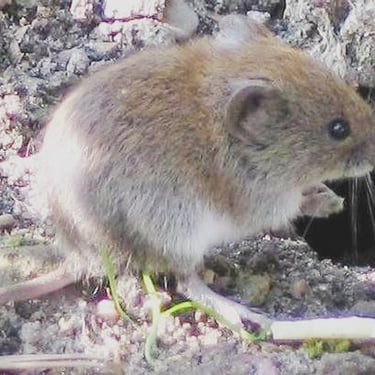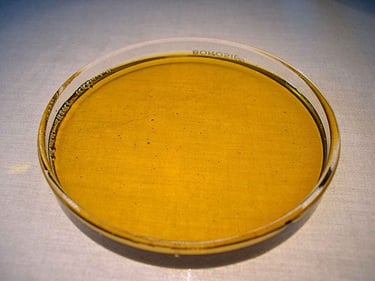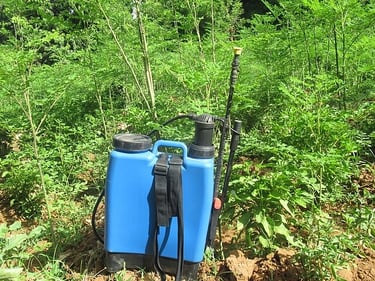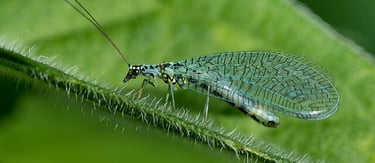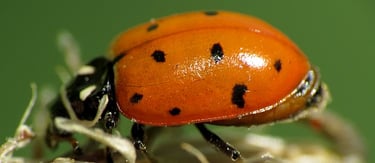Garter, Garden, or Gardener? A Snake With Many Names!
Why are names so difficult? Is it because they sound so similar? Or is it for a different reason that makes so much more sense!
GARTER SNAKESGARDENINGENVIRONMENT
Grace Zumbrun
11/1/20255 min read


I bet you have heard at least one time someone calling garter snakes “garden snakes” or “gardener snakes”, but is it just a mispronunciation or is it deliberate? (Unless this is just a Midwest thing!) I know that I definitely called them garden snakes growing up, and I constantly heard others do the same. It took a while to break that habit (probably when I was in high school TBH).
But why are they called that if it isn’t a mispronunciation? Maybe it’s because you commonly find them in gardens!
Garter snakes are one of the most common snakes you will find slithering in your garden and that’s actually a great thing! Unlike what you think snakes eat, garter snakes are voracious hunters of slugs, snails, leeches, lizards, amphibians, minnows, and even small rodents, like mice or voles! Holy cow! They eat a variety of prey, including some of a gardener’s worst nightmares for their veggies and flowers. Because they are such active snakes, they’re constantly on the hunt for food making them a great organic source, low maintenance form of pest control! They will eat the slugs, before they destroy your plants. Garter snakes are a native species that is widespread through the United States and Mexico and in some parts of Canada.
In the wild, garter snakes also tend to be shy (But not so much in captivity, our ladies are the opposite, coming right up to us begging for food). They are also diurnal, meaning they are most active during the daytime, which happens to be when most gardeners are out tending to their plants. Chances are, by the time you see one, it’s already seen you and made a quick getaway into some weeds, rubble, or rocks.
Speaking of weeds, rubble, or rocks, if you want to encourage more garter snakes to live by your garden, follow some of these tips! Leave leaf litter around instead of burning it or throwing it away. Garter snakes love hiding in the leaf litter because it is a safe space away from predators and it acts as a shelter for them (Generally, it’s good to do this whether you want to attract garter snakes or not so that the leaf litter can decompose and deliver nutrients back into the ground naturally). Piles of rocks also do the same! Having a source of water available for garter snakes helps too (Just don’t let it be stagnant, otherwise you might attract mosquitoes. Yuck!). Finally, make sure to avoid using pesticides.
As I have mentioned before in another article, pesticide and herbicide usage is becoming a major problem for garter snakes. Pesticides kill off their prey or can contaminate it so when a garter snake eats prey that has the harmful chemicals in it, the chemicals enter the garter snake’s body and can cause neurological issues that can potentially lead to death. Herbicides can unintentionally harm common prey items like amphibians, destroy plants that act as cover or habitats, and can also directly harm the health of garter snakes. Some common pesticides used in gardens are permethrin, bifenthrin, cypermethrin or deltamethrin, carbaryl, malathion, and neem oil. Common herbicides include glyphosate, 2,4-D, atrazine, dicamba, and glufosinate.
If you still want to use some form of herbicide in your garden, please consider these alternatives that are safe for garter snakes and the environment. Boiling water can be used to spot treat areas that kill plants by heat shock. This is safe to use since it does not leave any chemical residue. Just be careful to not burn yourself or any animals! Mulching is a great way to suppress weed growth where you apply it while enriching the soil it is on when the mulch breaks down. Please use natural mulch and not rubber mulch for that effect! Another solution could be to torch weeds using short bursts of propane flames. Like boiling water, there are no chemicals left behind, however, please be conscientious of any burn bans or drought conditions to prevent any wildfires or brush fires. 5% vinegar can be used to spot-treat on sunny, dry days, but it will need to be rinsed with water 24-48 hours afterwards, so that there is no residue left that can harm garter snakes.
For pesticides, consider adding beneficial insects that eat aphids and caterpillars like ladybugs, lacewings, and praying mantids. With this method, please make sure that you do not use invasive species. Ideally, try to source native species. Food-grade diatomaceous earth can be applied around plant bases. Since it uses mechanical means to kill crawling insects instead of chemicals, it is generally safe to use around snakes. However, this can potentially impact native species of insects, so use caution. Of course, you can remove weeds and pests yourself by hand! Just make sure to use gloves. See the links at the bottom of the page for things that I already use or will totally use in the future when I have a garden that is not just the porch of my townhouse!
Even if you do happen to encounter one, they are far more likely to musk on you than bite. When they musk, they secrete a nasty-smelling fluid from their cloaca in an attempt to get a predator to drop them or back off. Trust me, it works. I have been musked on too many times to count, and it’s nasty stuff. In the case that they do bite you, there is nothing to fear as their venom is mild and present in very small amounts. It is roughly comparable to a bee sting if they manage to break the skin. From personal experience of getting bit well, neither me nor my husband had any reaction to the bite. We just cleaned up the wounds and put a bandaid on it. Garter snakes are not dangerous animals. They also won’t chase you (If it seems like they are, it’s probably because you both are running in the same direction!). Garter snakes are also very adept swimmers, so don’t be shocked if they dive into a nearby pond, ditch, or stream.
So, with all of this said, please don't randomly kill snakes in your garden because they really can’t hurt you, they just want to help you with your green thumb!



